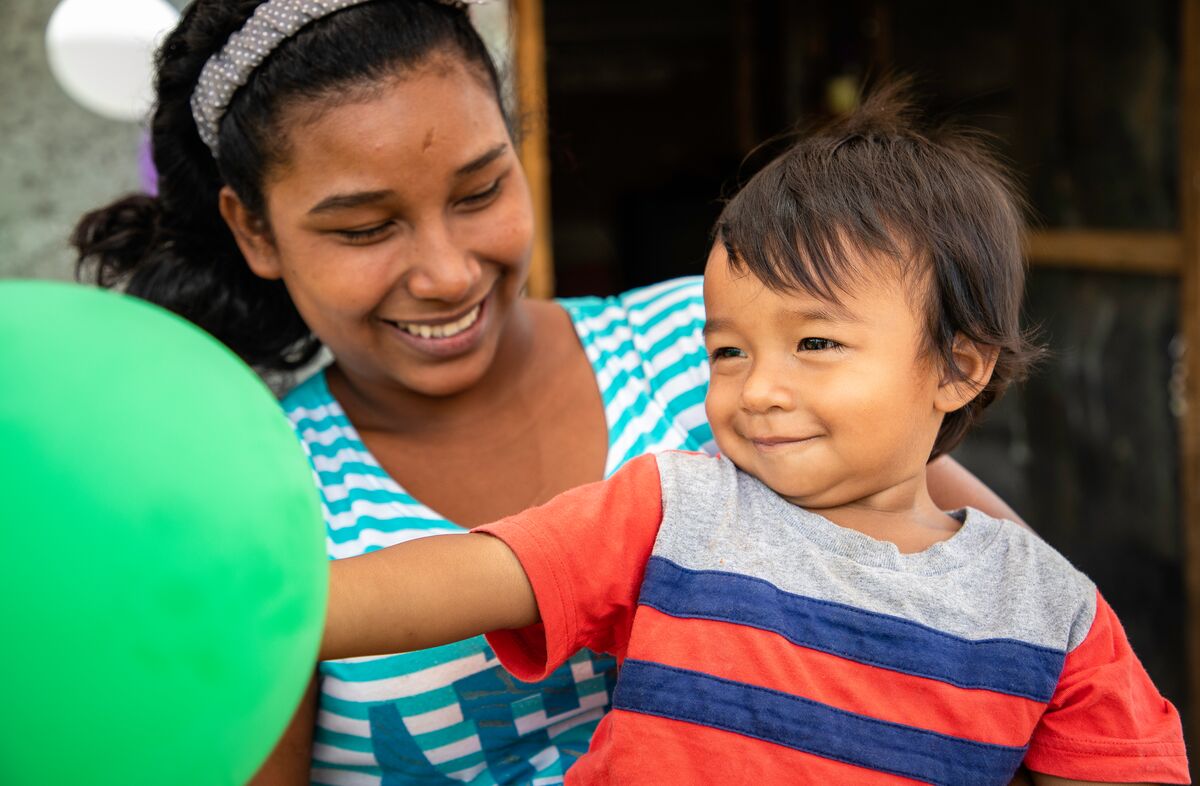Official Country Name: Republic of Nicaragua
Capital City: Managua
Population: More than 6.9 million
Official Languages: Spanish
Life expectancy: Male 71 years, female 77 years
Population with access to safe drinking water: 56%
Infant mortality rate: 11 deaths / 1,000 live births
Percentage of children under the age of 5 underweight: 4.6%
Adult literacy rate: Male 82%, female 83%
Religion: Approximately 43% of the population are Roman Catholic, 41% are Protestant and 14% are of another/unspecified religion or none.
Percentage living on less than $2.15 a day: 3.9%
Source: CIA World Factbook, International Religious Freedom Report, released in 2022 by the Office of International Religious Freedom, U.S. Department of State
Nicaraguan land was inhabited during pre-Colombian times by a number of indigenous people groups. Christopher Columbus was the first European to explore Nicaraguan land during his fourth and last journey to America.
Literature
Poetry is one of Nicaragua’s favourite forms of art. Rubén Darío (1867-1916), known as the “Prince of Spanish-American literature,” helped inspire the modernist literary movement in South America. Generations of Nicaraguan poets, fiction writers, and essayists have followed his example and are popular across the country.
Art
Earthquakes and war have obliterated much tangible evidence of Nicaragua’s cultural heritage, especially its colonial architecture. However, the city of León retains many fine, old buildings from this period and is also famous for street murals. The Archipelago de Solentiname, a collection of tiny islands found in the south of Lake Nicaragua, are a haven for artists, poets and craftspeople.
Music
Many Nicaraguans favour Mexican styles of music, often characterized by guitars and marimbas – a type of xylophone. Tonada music – a type of traditional poetic folk song, which captures the spirit of traditional South American rural life, is also popular. In Bluefields, the largely English-speaking town on the Caribbean coast, music has been heavily influenced by the rest of the Caribbean, so you’ll find reggae is popular here.
Language
The official language of Nicaragua is Spanish. However, Nicaraguans on the Caribbean coast speak indigenous languages and also English. Spanish: Buenos dias (Good morning), Dios le bendiga (God bless you), Hola (Hello), ¿Cómo está? (How are you?), Bien (Fine)
Sports and Games
Baseball is the most popular sport in Nicaragua. Younger children also enjoy a game of tag.
Typical Foods
A traditional Nicaraguan meal consists of eggs or meat, beans and rice, salads of cabbage and tomatoes, tortillas and fruit. Also common is gallo pinto, a blend of rice and beans. Other typical dishes include bajo, a combination of beef, greens, ripe plantains, and yucca; and vigorón, which is yucca served with fried pork skins and coleslaw.
The school year in Nicaragua runs from January to November. Education is free and compulsory for children between the ages of five and 11. However, there are a number of indirect costs, such as uniforms, books and transport, which many families simply can’t cover. Only 65% of children from the poorest families complete primary school compared to 90% from the wealthiest families.
UNICEF estimates that 500,000 Nicaraguan children aged three to 17 are not in the education system. Those who live in rural areas, are from indigenous communities, or have disabilities are particularly disadvantaged.
In a country with such high poverty levels, it is perhaps not surprising that many children have to work to support their families. It is estimated that there are between 250,000 and 320,000 child workers in the country, with one in three under the age of 14 having to support their families.
Source: UNESCO, ILO, UNICEF
Approximately 43% of the population are Roman Catholic, 41% are Protestant and 14% are of another/unspecified religion or none.
The constitution prohibits discrimination based on religion and allows all individuals to practice the religion of their choice. It also states that no one “shall be obligated by coercive measures to declare his or her ideology or beliefs.”
The Ministry of Education has an established elementary grade curriculum is based on “Christian, socialist, solidarity” principles and “human development” policy. The government’s 2018-2021 Human Development policy establishes the promotion of religious and faith-based festivities as a key component of all government policy.
Statistics from the International Religious Freedom Report, released in 2022 by the Office of International Religious Freedom, U.S. Department of State
